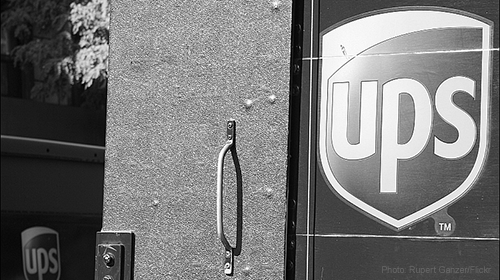
"Go home – you're useless to us right now."
These are harsh words no one wants to hear from their employer. But this was exactly what a UPS employee heard from her supervisor last fall when she informed him that she was pregnant and requested, based on her doctor's advice, that she be permitted to work in an area that would not require her to do heavy lifting.
Ann's job involved lifting heavy packages. Ann* knew that UPS had accommodated workers who had been injured or temporarily disabled at the facility with light duty work. When her doctor recommended that she lift no more than 25 to 30 pounds during her pregnancy, she immediately requested what she thought was a reasonable and temporary accommodation. However, instead of being given the very same light duty assignment others had received, she was told to go home and placed on unpaid leave.
Ann contacted the ACLU of Illinois after hearing about , a former UPS driver forced onto unpaid leave when she asked for her pregnancy to be accommodated at work. Young sued, arguing that UPS violated the federal when it refused to grant her a light duty assignment, even though it regularly gave such assignments to other workers who had suffered other temporary disabilities or injuries. Young's case made it all the way to the Supreme Court, where it was argued in December.
Fortunately, Ann didn't have to wait for a Supreme Court decision to get back to work. Even as it opposed Young's case, UPS acknowledged that accommodating pregnant workers makes good business sense and announced that it would be changing its policies to treat pregnant workers equally. UPS's new policy went into effect on January 1, 2015, the same day as a that all employers in Illinois to make reasonable accommodations for pregnant workers in the workplace. The new policy is designed to comply with the , like the one in Illinois, requiring employers to accommodate pregnant workers to the same extent as other workers who are injured or experience temporary disabilities.
As a result of UPS changing its policies in compliance with Illinois' new law, Ann is back on the job. After the ACLU contacted UPS on Ann's behalf, UPS agreed to return Ann to work and to grant her a light-duty assignment to accommodate her for the duration of her pregnancy. She is one of the first pregnant workers to return to work at UPS under the new policy.
Ann plans to continue working until close to her due date, just as she did during her previous pregnancy when she worked for a different employer. Thanks to UPS's new policy and Illinois' new law, Ann is back contributing to her workplace and earning the income she and her family need with a new baby on the way.
*Ann is a pseudonym.
Learn more about pregnancy discrimination and other civil liberty issues: Sign up for breaking news alerts, , and .

